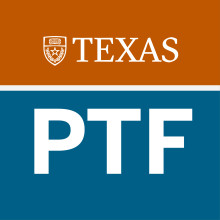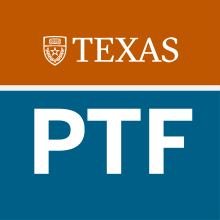Individual Fellow Initiatives

Does Increasing Course Depth While Reducing Breadth Improve Learning in College Students?
Student-centered learning strategies have been effectively used to increase academic performance and learning in students. Educators have hypothesized that course content reduction can also improve student learning. However, support for this idea is lacking. In the present project, I am planning to assess whether a content reduction strategy increases the academic performance of upper-division stem students at the University of Texas-Austin.

Disability Justice as Pedagogical Practice
Within social work curriculum, the topic of disability is either explicitly absent or medicalized. The lack of a rich understanding of disability as a cultural experience that intersects with other cultural experiences is concerning given our ethical guidelines of cultural competence and equity. Additionally, not only are students excluded via this omission, but so are faculty, staff, and social workers working in the field. Approximately a quarter of the population identifies as having a disability, yet our curriculum barely acknowledges their experiences.

Artful Learning: Integrating Art into Teaching Practice
This project aims to transform academic instruction by integrating art into the classroom. We believe that art can make subjects more engaging and help students connect with the material on a deeper level. By integrating diverse forms of art—such as virtual art, music, film, theater, and more—into the curriculum, we aim to create a more interactive and stimulating learning environment while also supporting students' mental health through therapeutic art sessions.

Implementing Computational Modules into the Materials Science and Engineering Undergraduate and Graduate Curricula
The development of increasingly powerful computational resources has made computational competencies new core forms of literacy that should be formed as part of basic education across all STEM fields.

QR Learning for addressing social and racial injustice
The current proposal envisions developing alternative pedagogical materials for the “Measuring Racial Inequality” course, written in plain language and accessible to students from social sciences/humanities and underserved communities and families.

Building Rigorously Compassionate Syllabi: Fostering Individual Accountability and Community Care
Our project seeks to revitalize the syllabus document as a tool of inclusion. We are interested in making visible the “hidden curriculum” with which students often struggle. The syllabus language, grading and attendance policies, communication and assignment fulfillment methods, course calendar flexibility, course material formats – these can all contribute to developing personal accountability and investment in community.

Early Exposure to Data Skills in Introductory Biology Sequence
Biology continues to be seen as a field for science-interested, but math-disinterested students. However, due to the surge in data use in all biology careers, and the focus in research on sequence data, there is a strong need for data skill development in biology degree programs. Math anxiety poses a specific challenge for biology education. A suggestion to overcome this, is an early introduction to data skills in the two-course sequence of Introductory Biology.

Offering Real-World Opportunities for Students Enrolled in Statistics and Data Science Undergraduate Research
The primary goal of this community-based service project is to provide experiential learning opportunities for undergraduates interested in statistics and data sciences while supporting the broader Austin-area community. Coordinating with local organizations, students enrolled in some of our SDS courses are gaining hands-on experience in data analysis while exploring authentic contexts. This innovative and collaborative effort provides a community-based model that allows students and local organizations to co-develop and answer real-world research questions.

Strengthening the Sustainability Studies Degree
Sustainability Studies graduated its first sizeable cohort in 2022, and the program has yet to undergo a comprehensive review. Conversations with students revealed their desire for better access to the professional field of sustainability across the sectors of non-profit, government, and business. This is an area that the current structure of the degree does not adequately address. To address these concerns, I am proposing a three-pronged approach. My first initiative is to build a database of internships across the three sectors mentioned above.

Peer Mentor Leadership Project
The Peer Mentor Leadership Project (PMLP) empowers undergraduate students to explore and develop their leadership styles. Participants design and implement mentoring and leadership projects that align with their goals and values, while assessing the impact of their work. The program emphasizes introspection, reflection, and professional growth, helping students strengthen their resumes and leadership skills.

Digital Research Apprenticeship: Projects For Intersectional Justice
Research and scholarship in Digital Humanities applies technology to humanities questions and subjects technology

Internship in the Media Industries
Internships have increasingly become a critical step in the college-to-career transition in the media industries and beyond.

Race, Democracy, and Global Social Justice: How Studying Inequality and Vulnerability can Transform the World
My initiative will achieve better learning outcomes in undergraduate and graduate students in History and the LBJ School by examining the intersection of history and contemporary policy, specifically its disparate impact on communities of color. Currently, departments, centers, faculty and students work independently of one another and lack valuable opportunities to collaborate. Genuine collaboration has evolved into a rare and difficult concept.

Mentored Research Learning: An Evaluation
Mentored research defies the traditional higher education approach, which separates research and teaching into distinct activities. Instead, mentored research fully integrates faculty research activities and student learning. In this approach, researchers do not simply carry out their research in isolation with a paid set of PhD-level research assistants. Further, students do not simply learn from in-class lectures or more traditional out-of-classroom experiences, such as study abroad.

Building Information Modeling (BIM) as a Proxy for Project-Based Learning Integration across the Architectural Engineering Undergraduate Curriculum
The University of Texas at Austin’s Civil, Architectural and Environmental Engineering (CAEE) department has taken several steps towards improving the preparation of Architectural Engineering students with respect to modern engineering tools, including the computing tools commonly used in engineering practice.

Teaching in Real Time
We teach in challenging times. As the world, and our campuses, become more connected our students grapple with the impact of challenging events both on and off campus. Faculty have asked for support and guidance for how to proceed within the framework of semesters and syllabi in order to cope or respond. Our faculty needs resources to help recognize critical moments and support for our pedagogical resiliency.

Data Analysis Tools: Integrating Computational and Statistical Techniques in the Environmental Engineering Curriculum
The goal of this project is to train the next generation of environmental engineers in computing and statistical techniques to solve big data problems. Current undergraduate students in the Department of Civil, Architectural and Environmental Engineering have little to no exposure to computational and statistical methods for data analysis (e.g., big data collected from sensor networks). I proposed to integrate computational techniques in several courses throughout the Environmental Engineering Degree.

Global Learning Experiences
Cross-cultural connections can deepen student engagement in the world around them and encourage their creativity about the course material. Such connections can happen in a UT classroom if the student body is particularly diverse, or if students participate in study abroad programs. Global connections are also being created through the Global Classrooms Initiative that connect UT students with students at universities from other countries through classroom activities, conversations and projects intentionally designed to encourage collaboration.

Medieval Digital Research Lab: A Pilot Upper-Division Course
The idea for this pilot course grows directly out of departmental and university goals to increase opportunities for Experiential Learning and for new technology exposure in the Humanities; and to involve more undergraduate students in original faculty research.

Freshman Opportunities for Research in the Geosciences (FORGe)
I am working on a unique partnership between Austin Community College (ACC) and UT Austin to develop collaborative peer learning communities (PLCs) in the Geosciences with mixed cohorts of two-year college (2YC) and four-year college (4YC) students.

Race and Curriculum Revision Project
While the U.S. is more racially open and culturally diverse than at any other time in its history, intolerance and marginalization—often around issues of race, culture and difference—continue to exist. This is punctuated in university settings where students of color find more access to opportunity, yet encounter socially and intellectually non-inclusive environments. UT-Austin stands at the forefront of concerns around race and equity, most recently with the Fisher decision and the current state lawsuit against UT-Austin regarding race discrimination in admissions.

Curriculum Integration Through a 4-year Design Project and Cross-course Educational Tools
In many curricula students find it difficult to understand the common thread and themes between their courses until near graduation (or ever). Thus, students are unable to benefit from the synergistic nature of a fully integrated program. Courses are taught by different instructors with different teaching styles and nomenclature (a potentially good thing), but all too often even the instructors are unaware of the material or educational objectives taught in complementary courses.

The Keys to Understanding History: Unlocking Digital Timelines
This project started out with a simple idea: From my original proposal, we noted that “Current historical timelines are not interactive, nor do they enable students to understand connections between different events. They are good at showing chronology, but are not good at illustrating how specific events are influenced by a whole host of different historical factors.”

From Putting in Time to Meaningful Civic Engagement: Transforming Service Learning in an Undergraduate Social Work Program
As a Provost’s Teaching Fellow, Vicki Packheiser is transforming Experiential Learning in Social Work’s foundational courses. This two-course sequence has long required 45 hours of service learning per course with a community agency. Social Work pre-majors contribute 10,000+ hours of service to the Austin community, serving as UT ambassadors while they gain experience that grounds their academics in future years. But the implementation has not lived up to the potential.

CREEES Fusion Room: an Interdisciplinary Digital Workshop
This project entailed the creation of a curricular context and physical space for collaborative interdisciplinary teaching and research for faculty and students interested in Russian, East European and Eurasian studies. This was achieved in two ways. First, I transformed the required gateway course to our major, “Introduction to Russian, East European and Eurasian Studies,” which had been a disjointed “parade of faculty” course with disconnected guest speakers.

